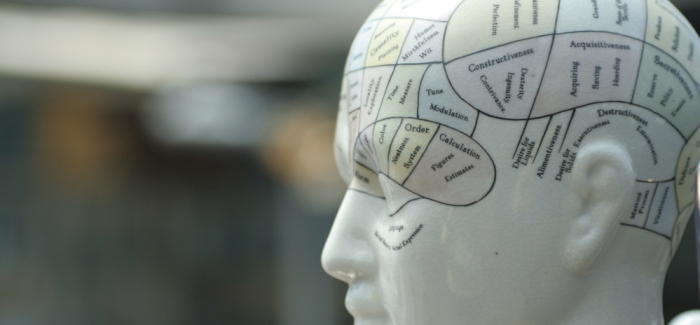Sponsored by emlyon business school
Thanks to wearable fitness trackers like Apple’s iWatch and the Fitbit, keeping track of your own health has never been easier. From counting how many steps you walk each day, to monitoring your sleep pattern, technology is allowing us to monitor our health like never before.
Practically every sector and industry in the world is jumping on the data intelligence bandwagon – and with good reason. It’s a lucrative market that can offer a wealth of innovative and sophisticated solutions, particularly to the health sector. The impact data intelligence can have on patients’ experience as well as the productivity of healthcare professionals is revolutionary.
So, how far can data intelligence in the healthcare sector actually go?
We spoke to Benjamin Dalmas and Florencio Travieso, the program co-directors of the new MSc in Health Management and Data Intelligence ran by emlyon business school and Mines Saint-Etienne to find out.
What was the motivation behind the introduction of the MSc in Health Management & Data Intelligence degree program?
Dalmas: “In the last few years, we have witnessed a boom in the development of intelligent technologies. The healthcare sector is a suitable place for concrete applications and several breakthroughs have been achieved with the help of these technologies, including artificial intelligence, machine and deep learning, and the Internet of Things (IoT).
“However, while they provide enormous amounts of help in decision-making processes, they must also be controlled and monitored from a human and managerial perspective.
“This program answers the need of training active experts with a dual competence who are able to be the link between the high-tech and healthcare domains. They’ll also be able to exploit the power offered by technology while meeting the ethical and human requirements necessary within the healthcare sector.”
What will students learn and what skills will they gain?
Travieso: “Students will be challenged from a management and a technical point of view. The MSc will provide them with the tools to understand the new challenges of a constant changing industry, as well as acquire powerful methodologies to manage innovative and collaborative projects, and be knowledgeable and agile on new technologies such as IoT and AI.”
Dalmas: “The first part of the program is intended to make them discover the healthcare ecosystem, its stakeholders and its current and future challenges. A major focus will be made on how to manage such an organization and how to implement digital transformation projects. The second part of the program delves into 'data intelligence' technologies, such as AI and big data, as well as nanotech and omics technologies.
“The objective of the program is to make students aware of the existing technologies on the market, their pros and cons, and how to implement them in the healthcare sector. A major focus will be set all along the program on the ethical, compliance and regulatory aspects of such technologies in order to ensure fairness and transparency in their everyday use.”
And what about jobs?
A new market research report by MarketsandMarkets predicts that by 2025, data intelligence in the healthcare sector will be worth an estimated $36.1 billion. As these advances become more ingrained and instrumental across the health sector, it’s critical humans and machines are able to collaborate well together and offer solutions that are beyond what was once thought possible, and not just for patients, but for those working in the sector too.
As Travieso explains: “The aim of this program is for graduates to have a position that acts as a connector between both domains. This also means the MSc degree will turn students from diverse backgrounds, such as biology, pharma, legal, as well as data sciences into broad professionals with technical and management competencies.”
Digital transformation consultant
Digital transformation consultants analyze and interpret important data and information in order to offer advice on how to plan and commission technology-based healthcare provisions.
Creating more accurate analytics for radiology and pathology imaging, improving the optimization of patient electronic health records, as well as developing more personalized interactions with patients through chatbots are just some examples in which digital transformation consultants may be able to do this in the future.
AI project manager
Echoing the job of a digital transformation consultant, AI projects are used to help optimize resources and processes used within the health sector to make it more effective and, of course, affordable.
It’s the job of the AI project manager to navigate, organize and integrate new technology projects in a safe and controlled manner. AI project managers need to have an in-depth knowledge of various AI technologies, such as machine learning, automation, and robotics in order to confidently and effectively oversee the running of such AI-related projects from start to finish.
Data intelligence business developer
Much like digital transformation consultants and AI project managers, data intelligence business developers are highly tech-literate with extensive knowledge of digital technologies including data, IoT (internet of things) as well as AI (artificial intelligence). This is crucial as you work to develop various projects and solutions within the health sector. Progression in this role can lead you to working as a chief digital officer.
Interested?
The MSc in Health Management and Data Intelligence starts September 2019 at emlyon business school and aims to equip students with the emotional aptitude and strategic abilities to overcome challenges and navigate their way in and around the healthcare sector.










